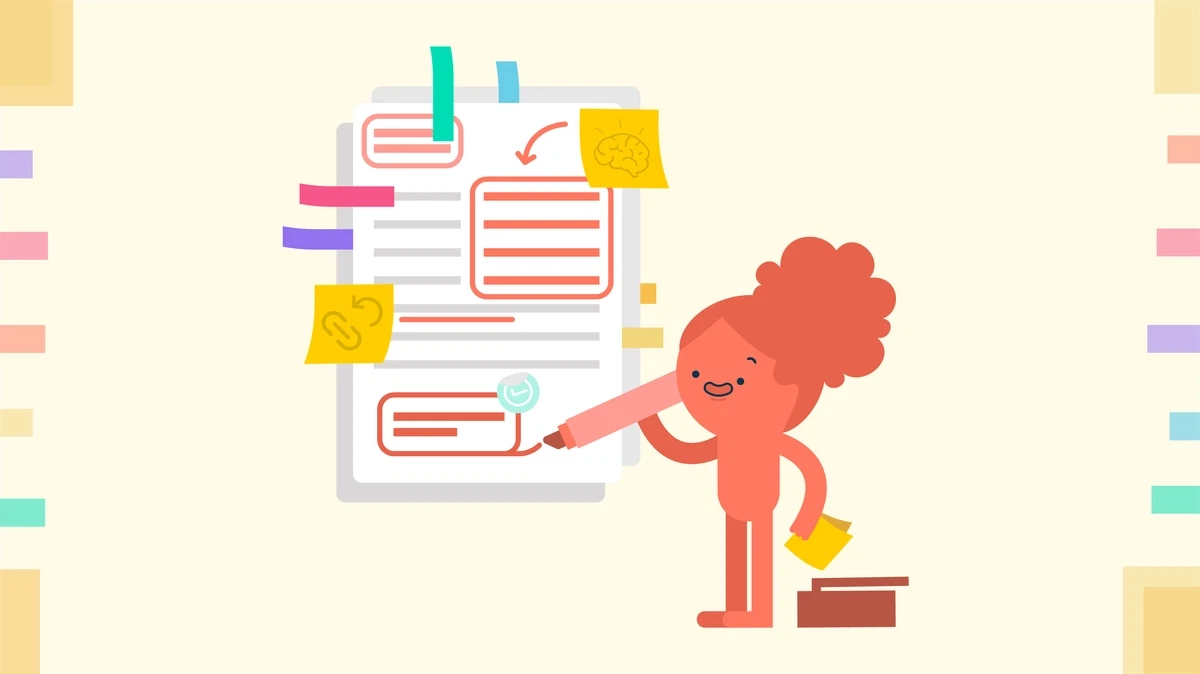How Typical are Typical Job Interview Questions?
Dreadful though it may seem, job interviews are generally not meant to be terrifying. When you’re new to the whole thing, it may feel like the world is out to get you. You may doubt your skills or be discouraged by the number of rejections you’ve received. Let me preface by saying that times are tough, and any no usually has nothing to do with your actual skills – just the circumstance. It’s the yes that counts.
After you’ve survived the screening process and got the job interview invitation, you should start preparing for some of the most common questions. Despite what you may think, job interviewers cannot really invent hot water all over again for each interview. While they may have field-specific queries, here is a set of questions that every employer will want to clarify with you first.
Common Job Interview Questions
Since these questions are just so common, your future employer will probably expect you to be able to answer them with no hesitation. So enough talking, let’s cut to the chase:
- Tell me about yourself.
This is a classic one, but don’t go off at a tangent about your favourite pack of cereals from when you were a child. You can give some brief information, but steer the conversation in the right direction, i.e. your knowledge. This is a great chance to quickly outline any relevant experiences that would make you suitable for the position. If you’re fresh out of school, you can talk about your education and accomplishments.
- Why do you want this job? What made you apply for this job?
Any question to that effect is there to test your experiences and how well you know the company you’re applying to. It’s always a good idea to do some company research beforehand (for example, on LinkedIn) and demonstrate how your knowledge and previous work experience fit the job role. The best way to answer this is to make connections directly: ‘Well, my previous work in the XZY field has taught me to be XZY. Since your company takes pride in that, I am convinced my experience would contribute positively to it.’
- Why are you leaving/did you leave your previous job?
This can be tricky. Depending on how you answer it, you’re painting a picture of yourself, so don’t try to act like a saint who was dreadfully wronged in your previous workplace if that wasn’t the case. You shouldn’t lie, but it would be wise to keep your attitude positive and future-oriented. For example, I left a job due to terrible conditions and was perfectly honest about it in my next interviews. Leaving any job is not inherently wrong – people move on, their goals change, so there’s nothing to worry about here. However, if you’ve been struggling to hold a job down, your interviewer will definitely want to know more about it.
If you were fired from your past job, you should be open about it. The circumstances of your dismissal will affect how you answer this question. If you were let go due to downsizing or outsourcing, you should be optimistic about it with answers such as: ‘It was unfortunate but inevitable. However, I’m grateful that I learnt so much there and I did a good job, as my references suggest.’ On the other hand, if you were fired for a mistake you made, be honest about it too, but focus on what you’ve learnt and how it will help you be a better employee.
- What are your salary expectations?
This one can go either way, but ideally, you’ll have looked at some salary ranges online. You can use a simple salary calculator to give you an idea of how your qualifications fare worldwide. Don’t sell yourself too short, but don’t aim too high, or you’ll price yourself out of the position. Also, be sure to know whether your salary is paid on a monthly or hourly basis. The latter comes with fewer benefits (like health insurance or social security) even though you’re guaranteed that your overtime would be paid.
Another Few Job Interview Questions and Answers
The questions above are easy – they’re about your life and intentions, after all. But there are some ‘easy’ questions that are not that simple to answer. In some of these cases, the questions, although open-ended, do have an almost correct answer (or at least the desired direction in which the answer should go). So, we’re providing some guidelines.
- What is your greatest strength?
No, don’t say you’re a high-achieving goal-getter. Even if you are, those are buzzwords that don’t say much. While this question is your time to shine, you should also try to shine in a particular way. When you talk about your greatest strengths, focus on those qualities that qualify you for the desired position. Show, don’t tell (how I hate that phrase, but it’s true). Use the so-called STAR method (situation, task, action, result) to explain how your good traits are related to your goals in the company you’re applying to.
Imagine you’re applying for a position in a software company. Your greatest strength is your IT knowledge. Depending on what you’re applying for, you will need a specific situation where you applied your skills. If you wish to be the company’s new developer, give an example of a piece of code you wrote or a snag you debugged. Explain your choice of action and the positive results. You don’t necessarily want to talk about that one time you spent six hours crying over a complicated code only to find a comma had been replaced by a full stop.
- What is your greatest weakness?
Again, now is not the time to claim that you work a bit too hard, get a tad too enthusiastic about projects, and suffer from inevitable perfectionism. Even if you really do, these sound like lies. On the other hand, your job is not to work too hard and be too enthusiastic – it’s to do what you are asked to do under contractual terms (I’ll get to this with regards to overtime). Anyhow, no need to pretend you’re either infallible or incorrigible. Pick a human weakness that won’t prevent you from achieving your tasks at the new company. Make the most out of your weakness and talk about what you’ve done to overcome it, what you’re learning from it, and how you’ve improved so far.
- Are you flexible?
Danger! Be careful how you answer this one, or you’ll end up working every weekend. Some overtime is fine, but you ought to set boundaries to preserve your sanity and some work-life balance. Be upfront about this! State that you can jump in occasionally if you’re really needed but that you have other arrangements for weekends and evenings. Trust me on this one: if they turn you down because of this, you’re better off without them anyway.
- How do you deal with stress?
*nervous laughter* ‘I don’t.’
How are your coping skills, by the way? Do you thrive or crumble under pressure? I personally crumble in private and pretend it’s all fine otherwise. Still, if you’re not good at dealing with stress, you don’t have to flaunt it: better say how you’re learning to cope with it by exercising regularly, practising mindfulness, or taking short trips.
- Tell me about a mistake you’ve made.
The only way around this one is through it. Describe the mistake using the STAR method with a focus on the (bad) result and what you did to fix it. In case of mistakes that couldn’t be fixed anymore, talk about your next steps, your usual plans, and all others which helped you remedy the situation.
- Why are you changing careers?
Depending on your specific circumstances, it’s usually best to provide commentary on the effect of changing life goals. In case of leaving your previous job on a bad note, you still want to make it neutral – don’t go spewing gossip or bad-mouthing your former boss as that does not reflect well on you either. State the facts and focus on the positives, like being available to explore new venues, obtain a new skill set, or rise to different challenges.
Some Questions to Ask in a Job Interview
Any job interview is a two-way street. Your potential employer gets to know you and gauge whether you’re a good fit for their company, but you also get to see whether they are a good fit for you. If you’re getting questionable vibes from the hiring manager, you might want to listen to your gut. Avoid companies that claim everyone is a family there or those that boast their dynamic environment. If you’re unsure about something, ask at the end of the interview.
Inquire about the work climate. They should be willing to tell you why the previous holder of the position you’re applying for had left (and how long they had worked at that company). All of these will tell you what to expect, and it’s up to you to decide whether the conditions work for you.
Some other clever questions you can ask at the end of the interview (and which leave a good impression) include:
- What can I do to prepare myself for the role?
- Are there any skills I can obtain that would make me a good fit for this job?
- What are the long-term goals of the company?
- Will there be advancement opportunities?
- Does the company offer any training courses or seminars to its employees?
Remember, this is a place you’re committing your time and energy to, so it may as well fit your needs.
Other Common Job Interview Questions
In addition to the above-listed questions and answers, you can brainstorm some answers to the following too:
- Where do you see yourself in the next ten years?
- What are your goals in this company?
- What do you know about our company/CEO?
- Who are our competitors?
- What qualities make you a good leader? Tell me about a time you assumed leadership.
- Tell me about a time you helped/didn’t help a co-worker.
- What is your ideal work environment?
- What was good/bad about your last job?
- Do you prefer working in a team or alone?
- What do you expect from your co-workers?
- How do you keep yourself organised?
The hiring manager could also ask you some tough questions, so check out this article to prepare yourself even more!
Good luck! 😊
Frequently Asked Questions (F.A.Qs)
In a job interview, you should ask questions such as what you can do to prepare better for the role, what skills or qualities you need to improve, what the long-term goals of the company are, and what potential for advancement there is. Also, if something wasn’t clear in the interview, now’s the time to ask.
To answer job interview questions, use the STAR method (situation, task, action, result) to illustrate situations. Always keep a positive attitude – even if something bad happened, focus on what you’ve learnt from the experience and how you’ve improved. Focus on relevant experiences that make you the right fit for the job.
Possible questions in a job interview will inquire about your previous experiences, your strengths and weaknesses, salary expectations, and your career choices. To answer them, be honest but positive and always focus on what you’ve learned and how you can apply it to the new workplace.
How we ensure our content is accurate and trustworthy?
At StudySmarter, we have created a learning platform that serves millions of students. Meet the people who work hard to deliver fact based content as well as making sure it is verified.

Gabriel Freitas is an AI Engineer with a solid experience in software development, machine learning algorithms, and generative AI, including large language models’ (LLMs) applications. Graduated in Electrical Engineering at the University of São Paulo, he is currently pursuing an MSc in Computer Engineering at the University of Campinas, specializing in machine learning topics. Gabriel has a strong background in software engineering and has worked on projects involving computer vision, embedded AI, and LLM applications.
Get to know Gabriel




